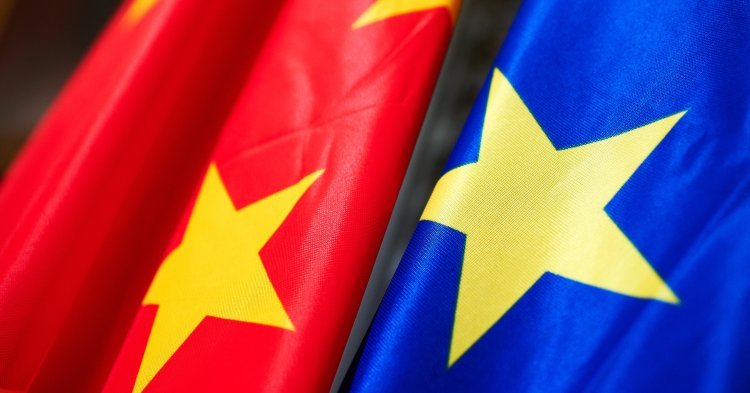When China benefits from European disunity
It was not until March that Europe became fully aware of the tsunami which was going to devastate it. The virus had already arrived, and health systems were uncertain about their ability to handle it. In a disorganised response, different EU Member States took more drastic preventive measures, others less so. On an EU level, there was chaos. The President of the Commission, Ursula Von der Leyen, apologised. During this time when European solidarity was at a standstill, one country’s offers of aid would stand out: China’s.
Having already gone through this crisis, China had a lot of experience in fighting the virus. Its production rate had been significantly increased, meaning it had the masks and respirators which greatly affected countries so desperately needed. Italy was the first country assisted by China, receiving experts and medical equipment. In the end, many European states, including Spain, France, Greece, the Czech Republic, Poland or the Netherlands received similar aid. This was carried out via multiple different bodies, such as the Chinese Red Cross, Huawei, Alibaba and the government. However, their aid was merely reciprocal: in February, when China was the epicentre of the epidemic, countries including France had sent medical supplies their way.
China’s “mask diplomacy” pursues a few different objectives. Firstly, it intends to make the international community forget the epidemic’s early catastrophic mismanagement, as well as the Communist Party’s lies. Chinese aid will also allow China to establish “Healthcare Silk Roads”, a reference to the new “Silk Roads” which have divided European countries so much. Ultimately, China seeks to extend its influence by strengthening its soft power while boosting the image of the Communist Party internally. In other words, it has emerged from the pandemic with a new image of a stronger international player.
When it comes to the European response to the pandemic and putting Chinese aid into perspective, the EU was indeed slow to react. In hindsight, however, its response has risen to the challenge, and although the field of health lies outside its competences, the Commission has assumed its role as a coordinator. After weeks of stalling, the European response to the coming economic crisis amounts to hundreds of billions of euros, as well as the pooling of some debt.
The countries most helped by China have thanked it warmly. The Serbian President, for example, declared that China was “the only country that can help us”. The European Union, however, has now taken the baton, and its comeback will help put Chinese aid to the EU into perspective: as the Commission has noted, Germany and France combined have donated more masks to Italy than China did. In a series of other statements, the Commission has clearly stepped up its efforts against Chinese misinformation operations, which exploited Europeans’ initial lack of solidarity. Josep Borrell, High Representative for the Union for Foreign Affairs and Security Policy, called for China to stop “aggressively” spreading misinformation. In this “global narrative stand-off”, the European Union must not let China dictate the game. Out of fear of a potential geopolitical conflict, Huawei has since reduced its donation program to the European Union.
China has scored points in the short term, but in the long run, European mistrust towards it seems to remain unchanged. Ever since it was labelled as a “systemic rival” by the European Union, China has failed to reverse the trend. The Leipzig summit scheduled for September between the two entities has been cancelled, but there was no guarantee that an agreement would have been reached, pandemic or otherwise. To improve its image, China must invest more concretely in multilateral international relations and guarantee a certain level of transparency. Donations and symbolic acts will not change Europe’s view.
International relations with China in a post-pandemic world
In reality, the pandemic has not put an end to the conflicts which plagued international society before it happened. The new “cold war” between China and the United States is at breaking point. The two countries both claim the other is the origin of the virus, and thus responsible for its consequences. with Donald Trump even labelling COVID-19 the “Chinese virus”. Trump’s isolationist policy, which resulted in the US’ unilateral withdrawal from the World Health Organization (WHO), has left the field open for China, which already exercised significant influence on African member states. In the context of a global vaccine race, this American decision seems to be ill-timed. The European Union must play the role which the United States has abandoned.
The pandemic has only shed more light on the new relations between East and West. As Gérard Araud, a former French ambassador to the United States, has written, "China wants a geopolitical status which reflects its recovered power. It worries its neighbors. It challenges the US hegemony. How to manage the resulting tensions will be the critical question of foreign policy in the coming decade.”
For several years, the West no longer rules the world, as evidenced by a 2008 crisis which saw many essential sectors come under Chinese influence. The Commission therefore plans to set up a common European mechanism for filtering foreign investment, in order to protect the Union’s strategic infrastructure. Emmanuel Macron has already called for the medical and pharmaceutical sectors to form part thereof.
The EU has recently demonstrated its ability to overcome ideological divides to build strong solidarity. This is excellent news, particularly when it comes to tackling Chinese influence in Europe. During this crisis, it was precisely said European solidarity which made it possible to stop the Chinese at their misinformation game. Diplomacy with China raises several issues. On the one hand, Gérard Araud argues, we should not overestimate the China’s power, and therefore fear it excessively. We must, however, oppose it, without neglecting it and its interests. Most importantly, it will be necessary to create a framework which both China and the European Union are able to partake in.

Follow the comments: |
|
